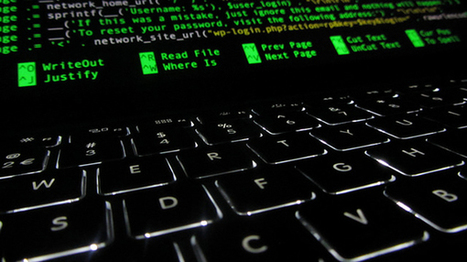As technology evolves, so does its role in industry and society. Its impact is felt across nearly all industries with education being one of the highlights with record worldwide investment in EdTech companies in 2018 so far. With an increase in educational technology-based solution providers, families are increasingly becoming involved in their children’s education. Independent learning methods facilitated by technology allow children to have a more personalized experience as well as allowing for more transparency for parents to monitor progress and even learn together. Here are 5 impacts of educational technology on families:
Research and publish the best content.
Get Started for FREE
Sign up with Facebook Sign up with X
I don't have a Facebook or a X account
Already have an account: Login
News, reviews, resources for AI, iTech, MakerEd, Coding and more ....
Curated by
John Evans
 Your new post is loading... Your new post is loading...
 Your new post is loading... Your new post is loading...
|
|












